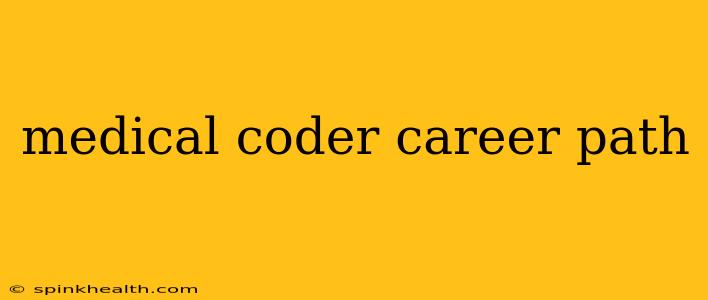Decoding the Future: A Medical Coder's Career Path
The hum of the hospital, the quiet click of a keyboard, the satisfaction of accurately translating medical jargon into precise codes – this is the world of a medical coder. It's a field brimming with opportunity, offering a blend of analytical thinking, meticulous attention to detail, and a profound impact on the healthcare system. But what exactly is a medical coder's career path, and how can you navigate it successfully? Let's unravel the mystery.
My name is Sarah, and I've been a medical coder for over 10 years. I've seen the field evolve, and I'm excited to share my insights to help you understand this rewarding profession.
What Does a Medical Coder Do?
Before we delve into career paths, let's clarify the core function. Medical coders translate the complex language of medical records – doctor's notes, lab results, diagnostic imaging reports – into standardized numerical codes. These codes are crucial for billing insurance companies, tracking healthcare statistics, and managing medical research data. It's a critical role, ensuring accurate reimbursement for healthcare providers and facilitating the smooth operation of the entire healthcare system.
What are the Different Career Paths for Medical Coders?
The beauty of a medical coding career lies in its versatility. It's not a one-size-fits-all profession; instead, it offers various pathways depending on your aspirations and skills. Here are some common progressions:
1. Entry-Level Medical Coder: This is where most begin, gaining hands-on experience and building a solid foundation in coding principles. You'll learn to interpret medical documentation, assign appropriate codes according to established guidelines (like ICD-10 and CPT), and prepare claims for submission.
2. Senior Medical Coder: With experience, you'll progress to a senior role, taking on greater responsibility. You may lead teams, mentor junior coders, handle complex cases, and conduct quality audits to ensure accuracy and compliance.
3. Medical Coding Specialist: Specialization can focus on specific medical fields, like cardiology, oncology, or orthopedics. This requires advanced knowledge and expertise within a particular area, leading to higher earning potential and greater job satisfaction.
4. Medical Coding Auditor: Auditing focuses on verifying the accuracy of coding practices, ensuring compliance with regulations, and identifying areas for improvement. This role involves a deep understanding of coding guidelines and regulations.
5. Medical Coding Manager/Supervisor: This leadership role involves overseeing teams of coders, managing workflows, ensuring quality control, and implementing best practices. It requires excellent communication, leadership, and management skills.
6. Medical Billing and Coding Specialist: Some choose to expand their skills to include medical billing, handling the financial aspects of healthcare transactions. This combines coding with the processing of claims, payments, and patient accounts.
How Long Does it Take to Become a Medical Coder?
The time it takes varies based on your educational path. A dedicated certificate program can be completed in a few months, while an associate's degree takes around two years. Experience and continuous education are crucial for career advancement.
What Education and Certifications are Needed to Become a Medical Coder?
Several educational pathways lead to a successful medical coding career:
- Certificate Programs: These offer focused training in coding principles and are a common entry point.
- Associate's Degrees: Provide a more comprehensive education, often including medical terminology and anatomy.
- Bachelor's Degrees: While not always required, can provide a competitive edge and open doors to advanced roles.
Certifications like the Certified Professional Coder (CPC) from the AAPC (American Academy of Professional Coders) and the Certified Coding Specialist (CCS) from AHIMA (American Health Information Management Association) significantly boost your credibility and career prospects.
What is the Job Outlook for Medical Coders?
The demand for skilled medical coders is consistently strong, driven by the ever-growing healthcare industry. Technological advancements and increased emphasis on accurate billing and compliance contribute to the positive job outlook.
Is Medical Coding a Good Career?
For those with a meticulous nature, a passion for healthcare, and an aptitude for detail, medical coding can be an exceptionally rewarding career. It offers job security, the opportunity for advancement, and the satisfaction of playing a vital role in the efficient functioning of the healthcare system. The path may be challenging at times, requiring consistent learning and adaptation to evolving regulations, but the rewards are significant for those dedicated to mastering this important skill set. It's a field where you can truly make a difference.

